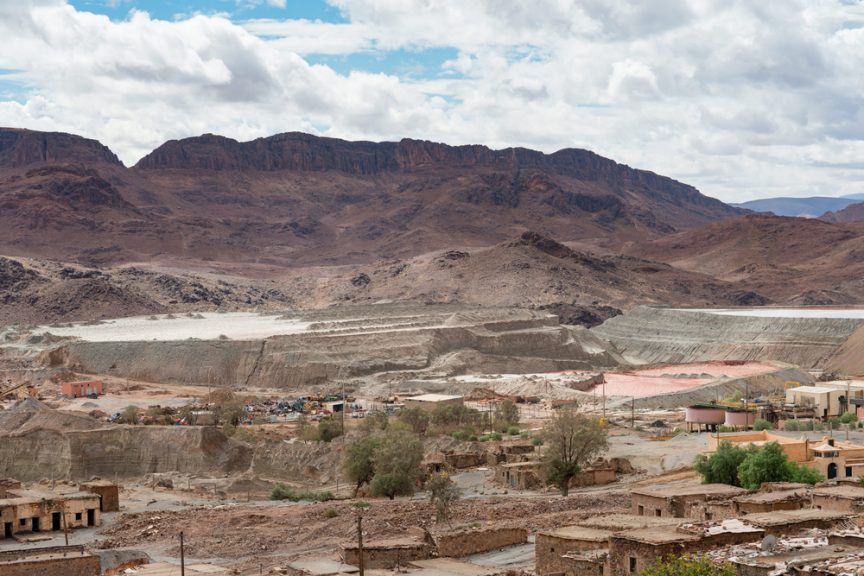Manufacturing electric car batteries requires a robust supply of cobalt from the Congo, but the country’s mining industry faces difficult working conditions. German automaker BMW is hoping to change that.
Electric cars are undoubtedly friendly to the environment, but manufacturing them can be more complex than it appears. Cobalt, a critical material in the construction of electric car batteries, is largely sourced from the Democratic Republic of the Congo, where miners often don’t always receive adequate protections from the law. As a result, auto manufacturers who hope to produce electric cars at a reasonable cost often struggle to build a safe and effective supply chain.
But BMW is hoping to avoid this problem by helping to research new solutions that could improve conditions for Congolese miners. Teaming up with development agency Deutsche Gesellschaft für Internationale Zusammenarbeit (GIZ), chemical company BASF, and the battery manufacturer Samsung SDI, the German car manufacturer is starting a pilot project that could revolutionize cobalt mining on the African continent.
The Current State of Cobalt in the Congo
Cobalt was once a little-known metal that has surged in value in recent years thanks to its utility in the production of lithium-ion batteries, which are used to power smartphones and other digital devices. This metal is sourced from mines all over the globe, including the U.S. But the world’s largest reserves of cobalt are in the Democratic Republic of Congo, a Central African nation whose economy is heavily reliant on the mining industry.
However, cobalt mining in the Congo is negatively affected by poor working conditions and outdated practices, which not only make for unhappy workers, but also for inefficient operations. It’s a complex issue that the Congolese government simply cannot tackle on its own, which is why BMW is spearheading the effort to develop innovative, new approaches that will allow better labor practices to prevail in the free market.
BMW’s Project Explained
In launching this new initiative, BMW and its partners are tackling the operational issues that plague the Congo’s metal mining industry head-on. What steps the group will take to encourage reform is unclear at the moment, as its goals are fairly open-ended. But over the course of the next three years, measures will be tested at a single pilot mine to improve the working conditions for manual laborers.
“[Our project] seeks to contribute to identifying workable solutions that lead to better working conditions at the mine site,” a spokesperson for BMW told Reuters. “If proven effective, these measures could then be scaled up to other legal artisanal mine sites and enhance systemic challenges in the longer run.”
Mining and Midwest Work to Improve Safety and the Environment
This effort represents a larger trend across the global mining industry towards safer working practices and more environmentally friendly operations. Much like BMW is working to ensure the electric cars it manufactures aren’t tarnished by poor conditions, metal mining companies across the world are making an effort to be more environmentally friendly by stamping out fugitive dust.
Midwest Industrial Supply, Inc. knows the challenges these mining businesses face all too well. With over 40 years of experience helping the metal mining industry achieve proper dust control, we know what it takes to ensure your operation avoids costly fines as a result of regulatory violations without impacting productivity.
The proper application of patented products like our Dust-Buster® Foam Agents ensures effective dust suppression for material handling and transportation processes while capturing harmful and combustible particles. Additionally, these products are completely non-toxic and environmentally friendly.
As mine owners and workers make an effort to ensure their operations are safe for everyone, Midwest will work with all parties to ensure that better dust control contributes to those efforts.

